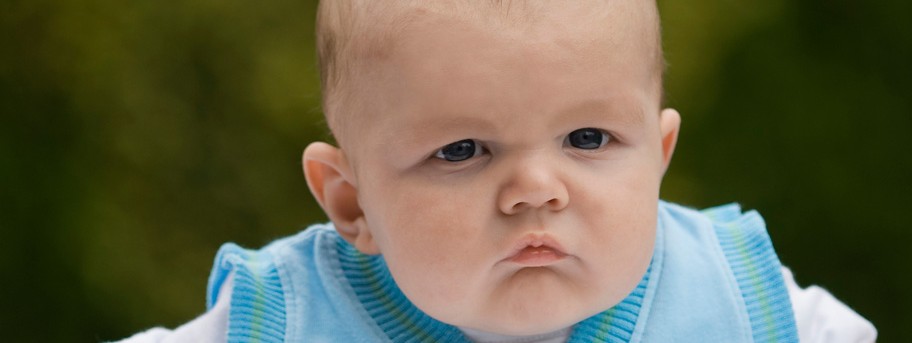The University of Nottingham
 Exchange online
Exchange online
Research Exchange
Risk factors predict childhood obesity, researchers find

High birth weight, rapid weight gain and having an overweight mother who smokes can all increase the risk of a baby becoming obese later in childhood, research by experts at The University of Nottingham has found.
The study, published in the latest edition of the journal Archives of Disease in Childhood, also discovered that children who were breastfed and were introduced to solid food later had a slightly reduced chance of becoming overweight.
The findings come following a systematic review and analysis of data from around 30 previous studies looking at the impact of factors affecting babies during the first 12 months of their lives and their potential link with childhood obesity.
The study was undertaken by PhD student Stephen Weng, supported by a team led by Dr Sarah Redsell in the University’s School of Nursing, Midwifery and Physiotherapy. The team also included Professor Cris Glazebrook and Professor Min Yang of the Institute of Mental Health, and Dr Judy Swift, School of Biosciences. The study was funded by NHS Nottinghamshire County PCT
The first study of its kind to review all the evidence for risk factors in infancy associated with childhood obesity, it is hoped the findings will help to bridge the gap between research and the implementation of new clinical practice.
Dr Redsell said: “The results of this study effectively identify the most significant risk factors by analysing data from a large number of other studies that have previously been conducted. This will offer a robust starting point for further research that will identify the most appropriate ways in which this information could be useful in healthcare practice.”
In the UK around one-quarter of children aged four to five years old and one-third of 10 to 11-year-olds are overweight and evidence suggests that children who are overweight at the age of five are more likely to be obese in adulthood.
Up to now, support from GPs and health visitors has centred on advice on healthy eating and breastfeeding but many practitioners believe more should be done to identify infants who are at risk of becoming obese at an earlier age.
The analysis of previous studies showed that:
- Children of mothers who were overweight before pregnancy were 1.37 times more likely to be overweight at the age of three; 4.25 more likely to be overweight at the age of seven; and 2.36 times more likely to be overweight between the ages of nine and 14 years.
- Six out of seven studies looking at infant birth weight showed a significant association between babies who were heavy at birth and obesity in later childhood.
- Six studies investigating rapid weight gain in babies in their first year of life found strong links with obesity — one study found that those babies in the top 20 per cent of monthly weight gain were 3.9 times more likely to be overweight at the age of four and a half years old.
- Children with mothers who smoked during pregnancy were 47 per cent more likely to be overweight compared to the children of non-smoking mothers.
- Children who were breastfed — however briefly — were 15 per cent less likely to become overweight in childhood compared to those children who were never breastfed.
- There is some evidence that giving solid foods early can be linked to later obesity — one study found that formula-fed babies given solid foods before four months were 6.3 times more likely to be overweight at three years of age than those where solid food was introduced between four and five months.
- No compelling evidence to show a link between childhood obesity and maternal age or education at birth, maternal depression or ethnicity and inconclusive evidence for delivery type, weight gain in the womb, maternal weight loss after birth and ‘fussy’ infant temperament.
- The research could be used to compile a ‘checklist’ for GPs and health visitors to help them spot infants most at risk of becoming obese later in life. However, researchers say more work is needed to study the practical and ethical considerations of such an intervention, including whether it would be accepted by parents and could feasibly be introduced in the current health service.
Any risk factor checklist, they say, would also require testing in the field and would need to be accompanied by clear clinical guidelines for healthcare practitioners.
More details about the team and its research.
Tags: adult obesity, baby, breastfeeding, childhood obesity, feeding, Institute of Mental Health, Midwifery and Physiotherapy, mother, NHS Nottinghamshire County PCT, overweight, School of Biosciences, School of Nursing, smoking
Leave a Reply
Other

Top prize for quantum physicist
A University of Nottingham physicist has won a prestigious medal from the Institute of Physics for […]

Zero carbon HOUSE designed and built by students comes home
Design and construct a low cost, zero carbon, family starter home, transport it to Spain, build […]